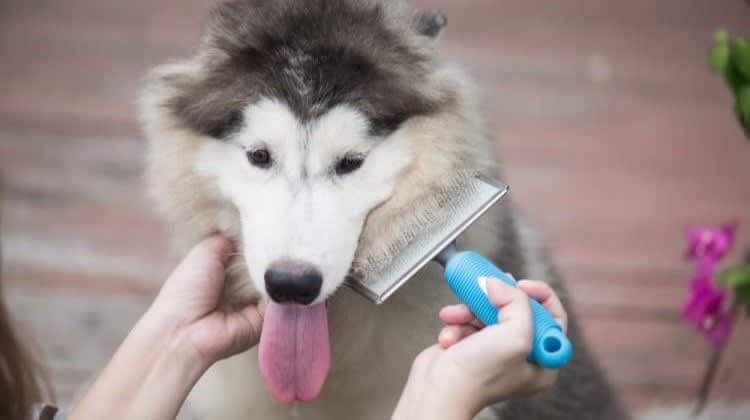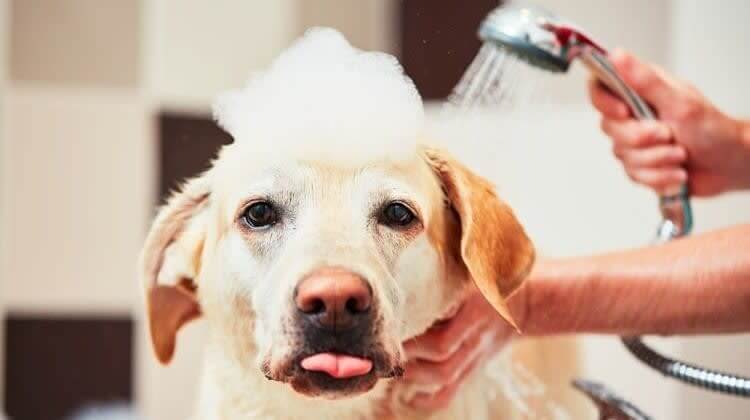1. Maintain A Skincare Regime

A good skincare regime will allow you to become familiar with your pet's skin, taking notice of how it should look and feel. Ensuring you groom your dog regularly, looking for bites, dryness and bumps will allow you to keep on top of any issues. More often than not, skincare conditions are linked to other health problems. So, it's essential to keep track.
2. Common Causes Of Skincare Problems

- Poor nutrition can lead to your dog having scaly skin or sparse fur. While you might be feeding your dog ample amounts of food, it might be lacking the nutrients that they need.
- Allergies can often bring on red and itchy skin and in some cases broken skin. Allergies may be down to flea bites, skincare products or the environment. While it can be challenging to pinpoint the cause in some cases, you need to.
- Parasitic infections can also contribute to dry and itchy skin. Keeping on top of vaccinations is a handy way to eliminate this.
- An adverse reaction to food (an allergy or something that they shouldn't have eaten) can make your dog scratch.
- A bacterial infection can inflame the skin, leaving it looks red and raw.
3. A Simple Guide To Taking Care Of Your Dog's Skin

As with everything in life, prevention is better than cure. Therefore, taking care of your dog's skin is the best thing you can do.
- Starting with regular grooming sessions, you should brush your dog to remove tangles from their fur. At the same time, you should take the opportunity to check for dry skin, scabs and bumps. Make sure you part the fur carefully and look out for flea bites and dirt.
- If your dog has folds in their skin, you shouldn't forget to wash them regularly. Every couple of days, gently wipe them clean and dry them thoroughly.
- Don't forget to check your pup's ears occasionally; this is particularly important after they've been in the water.
- Finally, you should take further steps to smoother and soften your dog's skin as and when needed. Offer your pup regular baths using a gentle dog-friendly shampoo, ensuring you dry their skin and fur properly afterwards.
4. Consult With Your Vet

If you're not sure what the cause of your dog's skincare condition is and you have cause for concern, you should consult your vet. While skincare conditions are often relatively easy to treat, some may indicate other health concerns. So, remember to keep on top of it.
